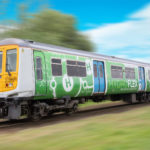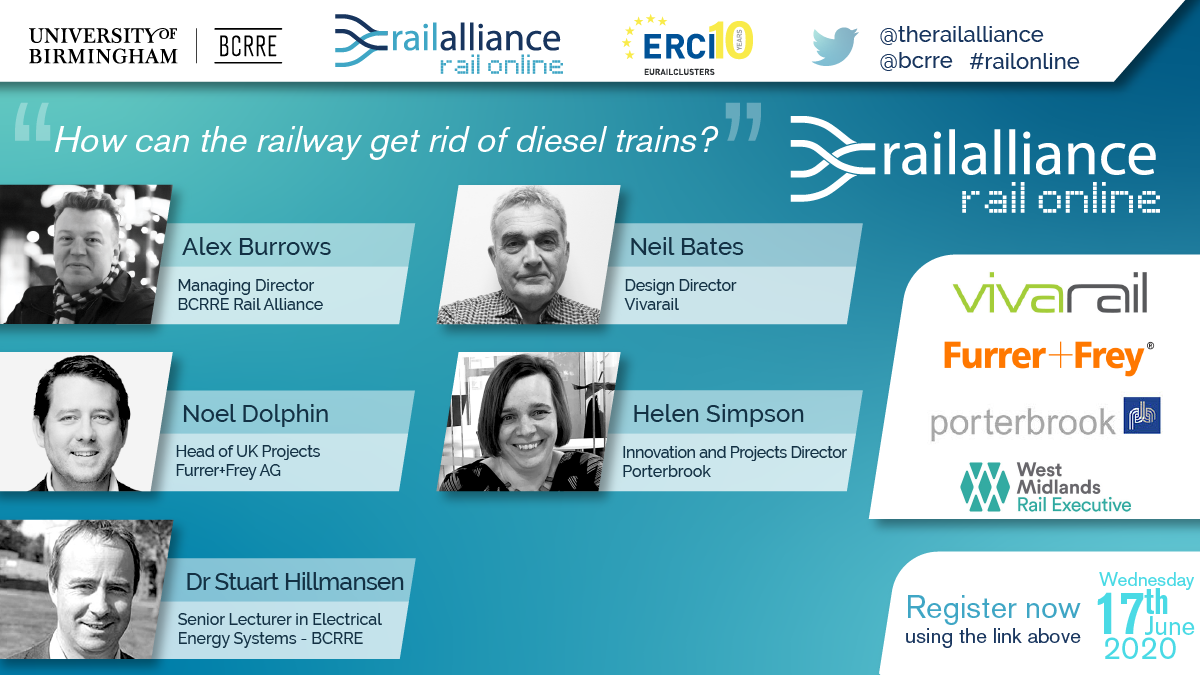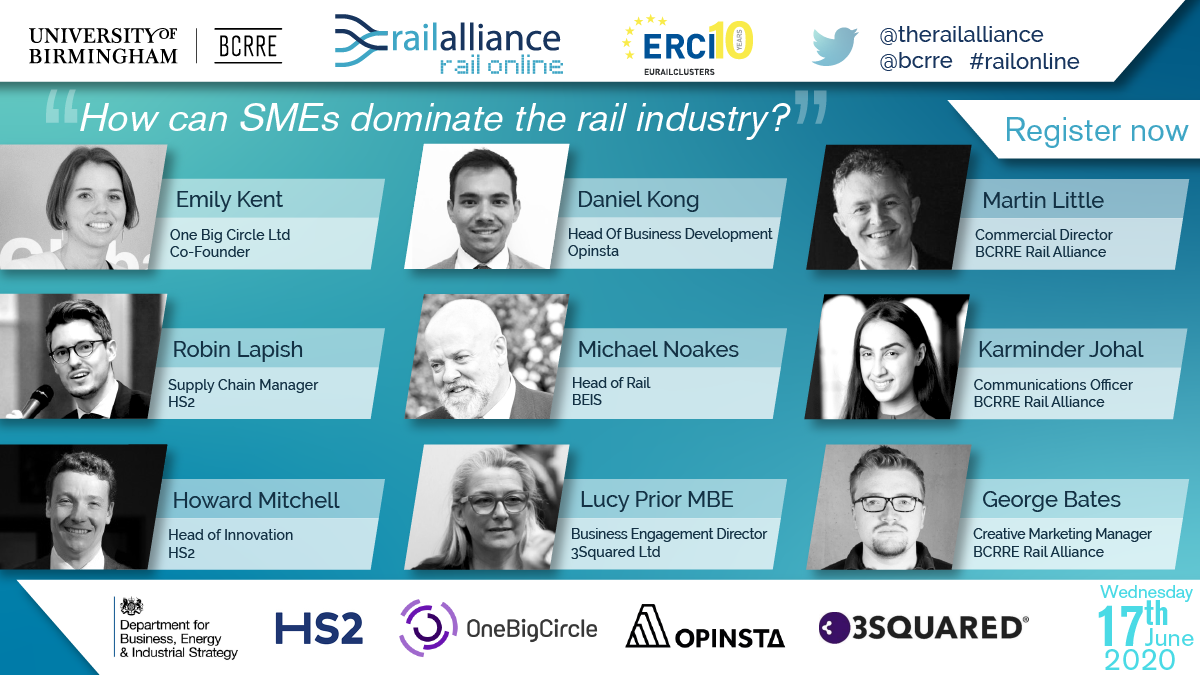
We have had a busy morning across BCRRE and the Rail Alliance with our Rail Online event taking place and a big project announcement breaking cover.
Firstly, we are delighted to be able to share the news that our HydroFLEX project is now moving into a final development phase supported by Innovate UK funding. We will be developing the production design with a focus on moving the traction power and energy systems into an underframe raft thereby releasing the carriage space for passengers. We are absolutely thrilled to be able to continue this ground-breaking project which has received praise from the Rail Minister and the West Midlands Mayor – you can read more here: www.birmingham.ac.uk/news/latest/2020/06/hydroflex-secures-funding-for-hydrogen-powered-train-design.aspx
That announcement set the scene nicely for the first of our two Panel debates that took place as part of our Rail Online web event. Our intention was to stimulate discussion on two topics that are major challenges for the rail industry – diesel trains and SMEs.
In the first panel debate the challenge we set was “How can the railway get rid of diesel trains?” I was joined by Neil Bates from Vivarail to set the scene; we were then joined by Helen Simpson from Porterbrook, Noel Dolphin from Furrer & Frey, and my BCRRE colleague Dr Stuart Hillmansen.

This was a fascinating discussion that focused in on several key points. Firstly, how urgently do we need to get rid of diesel? Neil and Helen both made strong points regarding the development of technology to reduce emissions as well as recognition of the respective value in doing this given the investment that has been made. Noel made a strong case for a rolling programme of electrification and taking a strategic system-level approach to how we can decarbonise the railway over the next 20-30 years. Stuart discussed recent research on the case for electrification and the technology development taking place, particularly with regard to batteries and hydrogen fuel cells. Freight was a key part of our discussion as well recognising the value of moving freight by rail and the specific requirements for freight compared to passenger trains.
I was left in no doubt that the goal of rail decarbonisation is essential and achievable – the debate is in what means we use to deliver that goal.
In the second panel debate the challenge we set was “How can SMEs dominate the rail industry?” My BCRRE Rail Alliance colleagues Karminder Johal and George Bates set the scene and were joined by Dan Kong from Opinsta and Emily Kent from One Big Circle. The panel also included Howard Mitchell and Robin Lapish from HS2, Mike Noakes from the Department of Business Energy and Industrial Strategy, Lucy Prior from 3Squared and my BCRRE Rail Alliance colleague Martin Little.

A number of strong points were made which focused around the themes of building effective relationships, the role and value of procurement, and the inherent need for the benefits that SMEs bring. The discussion brought out a number of really interesting points including the need for SMEs to maintain their focus on their core product offering (avoid distractions!), to understand and protect their value, and to build networks and relationships as these are key to long-term success. Our three SME representatives gave a number of valuable insights from their experience. While our panellists from HS2, BEIS and the Rail Alliance shared a number of compelling points on the landscape for SMEs and the client and government perspectives that ultimately shape the context for SMEs.
I could quite happily have continued both discussions for several hours and I am hugely grateful to all of our panellists for taking part and sharing their knowledge with our Community. Both subjects are hugely relevant to the rail industry and I am sure there will be plenty more to focus on with both topics!
